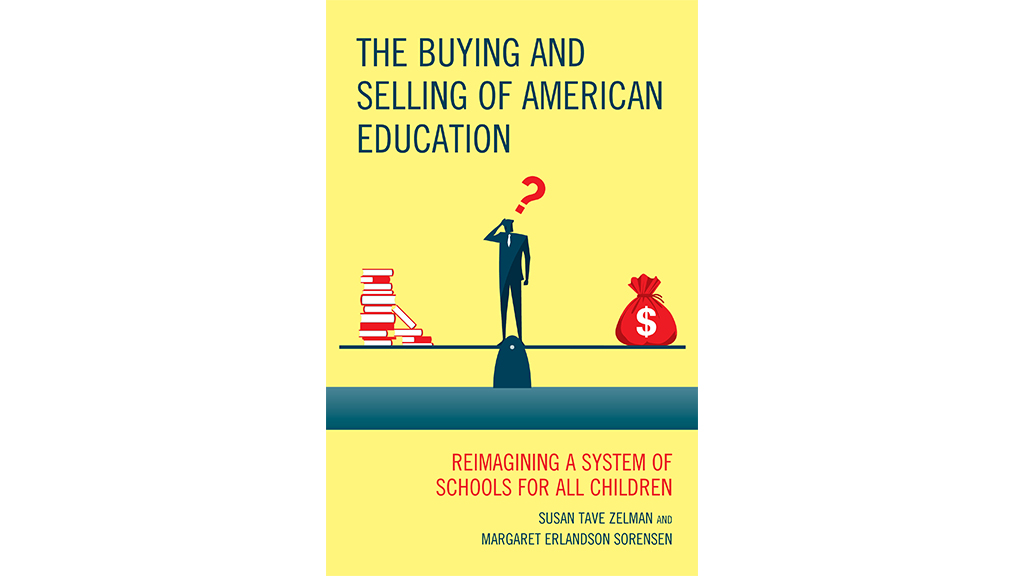
PHOTO COURTESY OF ROWMAN & LITTLEFIELD PUBLISHERS
In The Buying and Selling of American Education: Reimagining a System of Schools for All Children, authors Susan Tave Zelman and Margaret Erlandson Sorensen explore the structural policy challenges throughout America’s education system to highlight the need for improved “quality and equity in education.” Each era in America’s history is explored through legislation, curriculum, the profession, equality, and access. Zelman pulls from her background in education and Sorensen her experience in community organizing and research to delve into the challenges, elaborating on societal, geographic, political, and economic issues.
They illustrate U.S. education as a stool with legs of curriculum, instruction, and assessment, each important to sustain the system. The authors unpack societal, economic, and political pressures; various instructional methods, including digital options necessitated by COVID-19; and concern over alarmingly poor U.S. student performance on assessments. The authors assert that the “best curriculum is ever-evolving,” and teachers should use classroom diversity to facilitate critical thinking. Other countries’ educational systems are examined to guide recruitment, teacher preparation, best practices, evaluation, and professional development, emphasizing the need for respect in the teaching profession. Linda Darling-Hammond is referenced in suggestions for the future, discussing different regional needs, advocating for increased recruitment of people of color, and promoting diverse collaboration as an educational resource.
The authors examine the roots of public education through private and public options, including separate schooling, gerrymandering, and de facto and de jure segregation. Contrasting these options, they determine that despite many attempts, segregation still exists in schools.
Parental and community involvement is examined, suggesting engagement through a community approach. Post-pandemic community support can create links between parents and schools, such as offering child care and transportation, which are “critical to building and sustaining school reform.”
Critical questions are posed, through examination of social theory and philosophy, to suggest that no systemic changes have advanced student achievement or closed the gap with any major success. This lack of historical successes supports their idea of “starting from scratch” with a pluralistic system, reinforcing Ashley Roger Berner’s research of creating various publicly funded school options. Pluralism would require stringent federal oversight through standards but allows for autonomy in instructional methods and curriculum. Although this proposal could shift many factors in America’s education system, the focus still revolves around the impact of student achievement for governmental stakeholders, absent the need for personalized options to support the child versus their achievement.
Kaitlyn B. Evans (kevans62@charlotte.edu) is a doctoral candidate at The University of North Carolina at Charlotte.

Share this content